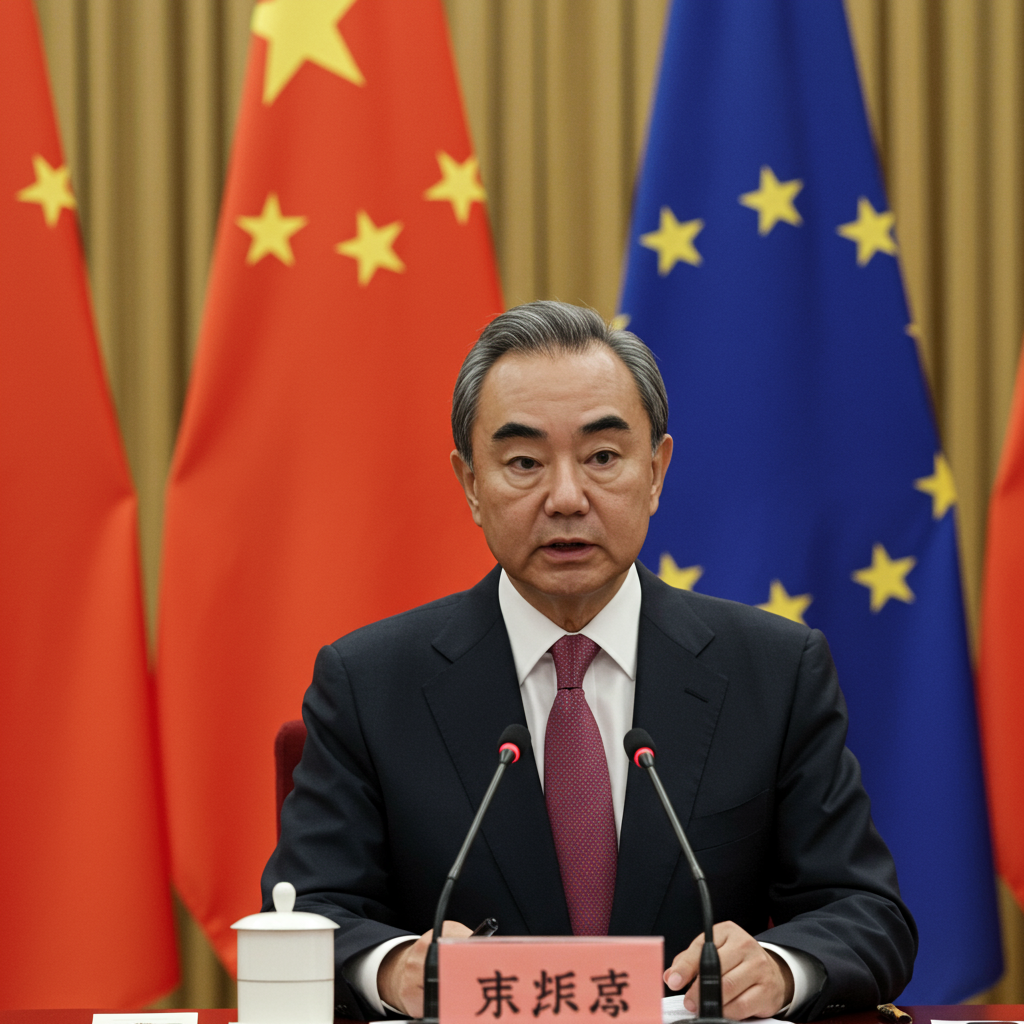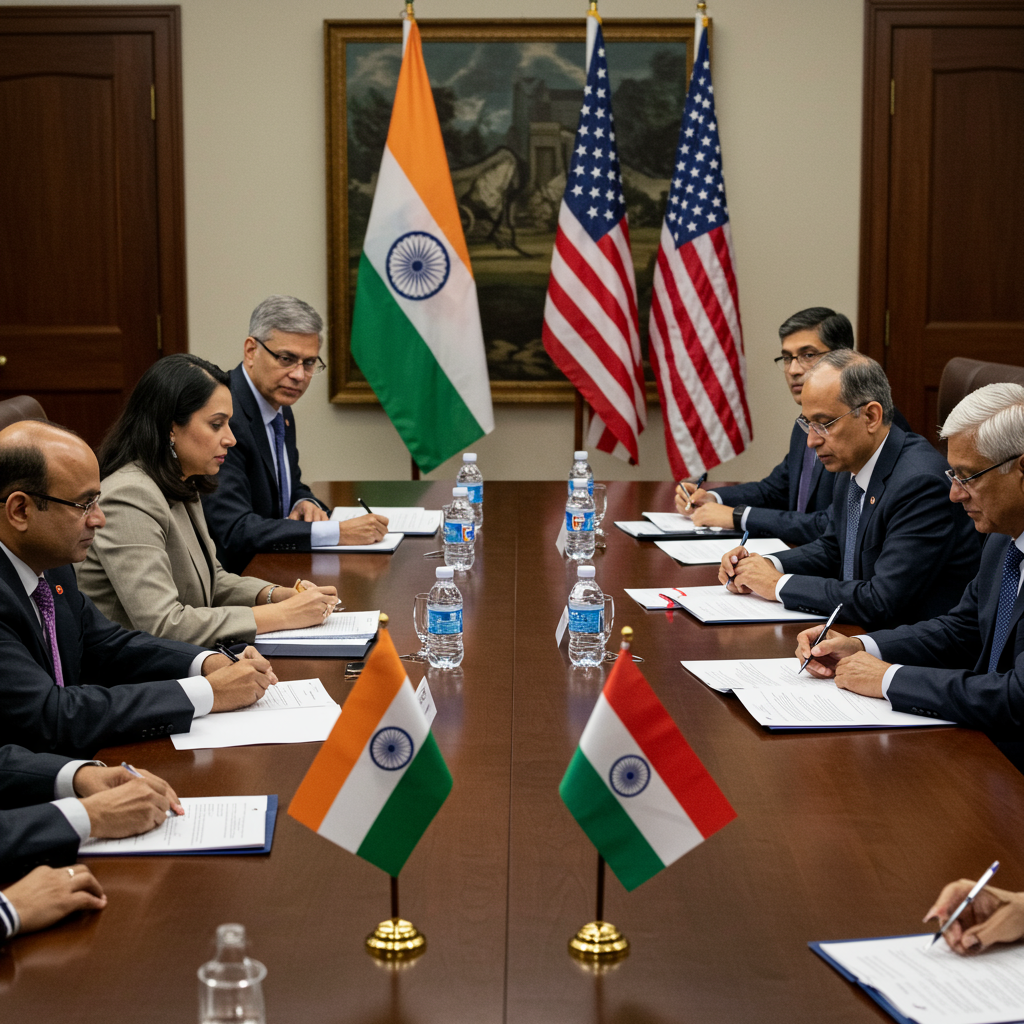china’s foreign minister has strongly pushed back against european concerns that Beijing is weaponizing its dominant position in rare earth elements. Speaking during a recent diplomatic tour, Wang Yi asserted that these critical material exports should not become a point of contention, even as European industries voice alarm over restrictions and supply chain uncertainty. His comments come amidst ongoing trade tensions and ahead of a key summit marking 50 years of China-EU relations, highlighting the delicate balance between economic cooperation and strategic resource control.
Addressing EU Concerns Over Critical Minerals
Chinese Foreign Minister Wang Yi recently visited Germany as part of a wider European trip aimed at preparing for an upcoming high-level China-EU summit. During a press conference in Berlin with his German counterpart, Johann Wadephul, Wang specifically addressed anxieties among European companies regarding China’s export controls on rare earth elements. He stated emphatically that rare earth exports “have never been – and should never become – an issue between China and Europe.”
Wang Yi framed the control of dual-use goods, which include rare earths essential for both civilian high-tech manufacturing and military applications, as a legitimate sovereign right. He argued this practice aligns with international norms and contributes to global peace and stability. He dismissed concerns from some European officials who fear China might use these exports as a geopolitical tool. China, he insisted, is simply fulfilling its international responsibilities through these measures.
China’s Stance on Export Regulations
Chinese authorities maintain that their export control regulations are clear and manageable. Wang Yi highlighted the existence of a “fast-track channel” designed to facilitate access for European companies. He provided assurances that the “normal needs” of European enterprises will be guaranteed, provided they adhere to the necessary application procedures and follow China’s export control rules. This suggests that while controls exist, Beijing aims to ensure legitimate trade continues under specified conditions.
Adding to this, China’s Ministry of Commerce spokesman He Yadong recently confirmed that the review process for rare earth export licence applications is being accelerated. He noted that a number of applications had already been approved. He Yadong stated that China would continue to strengthen this review process and expressed willingness to improve communication and dialogue with relevant countries on export controls, actively allowing compliant trade.
Why Rare Earths Matter to Europe
Despite China’s reassurances, European concerns remain significant. The European Union has explicitly urged China to ease export controls on several critical rare earth minerals and magnets. These restrictions, introduced amidst broader trade disputes, have triggered considerable unease and supply chain turmoil, particularly impacting industries like the automotive sector.
EU Trade Commissioner Maros Sefcovic previously described the issue as a “priority.” He emphasized the critical nature of rare earths and permanent magnets for widespread industrial production across various sectors, including electronics, clean energy, defense, and automotive manufacturing. German Foreign Minister Wadephul echoed these concerns during the Berlin press conference, highlighting the anxieties of German companies regarding what he termed “unilateral and often non-transparent export restrictions.”
EU Pushes for Predictability
The uncertainty created by the current case-by-case licensing system is particularly challenging for European businesses. Commissioner Sefcovic had proposed transitioning to an annual bulk approval mechanism for companies. This shift could help reduce bureaucratic delays, ease pressure on affected industries, and provide greater predictability for supply chains heavily reliant on these Chinese-sourced materials.
Minister Wadephul underscored the need for sustainable solutions rooted in principles of fair trade and reciprocity to rebuild trust damaged by the current uncertainties. He stated that individual solutions would not be sufficient to restore the lost confidence, calling for greater transparency and a move away from unilateral measures. Germany, while seeking to strengthen economic ties with China, insists that relations must be based on open markets and fair competition.
Broader Geopolitical Context and Diplomacy
Wang Yi’s European tour and comments on rare earths are set against a complex backdrop of China-EU relations. This year marks the 50th anniversary of diplomatic ties, with both sides preparing for a key summit expected to focus heavily on trade and economic issues. Wang stated that China looks forward to high-level engagements and hopes Germany will play an active role within the EU to promote stronger coordination and deeper cooperation.
Beyond trade, sensitive geopolitical topics were also on the agenda during Wang’s meetings in Germany and Brussels. Discussions included the Ukraine conflict, Iran’s nuclear program, and the situation in the Middle East. Both China and Germany pledged to maintain close communication, improve coordination, and work towards de-escalation and peaceful conflict resolution.
Navigating Complex Relations
The strategic importance of rare earths is amplified by the broader global landscape. Reports based on sources privy to earlier meetings in Brussels suggest that China’s stance on geopolitical issues like Ukraine is a significant factor in EU-China relations. While China officially states it does not provide military support to Russia and controls dual-use items, some EU officials reportedly believe Chinese companies are supplying components used by Russia’s military-industrial complex. One report, citing sources, even alleged Wang Yi told EU officials China cannot afford to see Russia lose in Ukraine, viewing the conflict as a distraction for the United States.
This sensitive geopolitical context intertwines with economic concerns. The EU has not only demanded eased rare earth restrictions but has also urged China to use its influence on issues like Iran’s nuclear program. Meanwhile, a positive development in China-EU trade relations seems to be progress on resolving a dispute over electric vehicle (EV) tariffs, with Chinese state media suggesting a deal based on a price undertaking mechanism is nearing completion. This indicates a willingness on both sides to find common ground on specific economic issues despite underlying tensions.
Experts Weigh In
Analysts view Wang Yi’s visit as crucial for stabilizing China-Germany relations, which are foundational for broader China-Europe ties. Experts suggest that consensus between Beijing and Berlin could help address contentious issues like EVs and rare earths. While China presents a sincere and open approach, not avoiding sensitive topics, the core challenge remains bridging the gap between China’s defense of its sovereign controls and Europe’s demand for predictable, transparent access to critical resources vital for its industrial future. Maintaining institutionalized dialogue is seen as key to managing these complex relationships and promoting problem-solving cooperation in a turbulent world.
Frequently Asked Questions
Why is China restricting rare earth exports?
China explains its rare earth export restrictions as an exercise of sovereign right and an international responsibility to control dual-use goods. These materials are essential for both civilian high-tech manufacturing and military applications. Beijing states that these controls align with international norms and help maintain global peace and stability.
How are European companies impacted by these restrictions?
European companies rely heavily on China for rare earth elements. Restrictions have led to supply chain turmoil, particularly affecting critical industries like automotive, defense, energy, and electronics. European officials have voiced concerns about the lack of transparency and predictability, advocating for easier access and more stable supply mechanisms like bulk approvals.
What is the current status of the rare earth export issue between China and the EU?
China’s Foreign Minister Wang Yi recently sought to reassure Europe, stating rare earth exports should not be an issue if companies follow procedures. China’s Commerce Ministry is accelerating export license reviews. However, European officials continue to express significant concerns over transparency, predictability, and the unilateral nature of the controls, emphasizing the need for sustainable, trust-building solutions rooted in fair trade principles. Dialogue is ongoing ahead of a key China-EU summit.
In conclusion, while China attempts to smooth over concerns about its rare earth export controls, assuring Europe that legitimate trade will continue under compliance, significant anxieties persist within the EU regarding supply chain stability and transparency. The issue remains a critical point of discussion amidst broader trade negotiations and complex geopolitical dynamics, underscoring the intricate nature of China-Europe relations as both sides navigate strategic priorities and economic interdependence.



